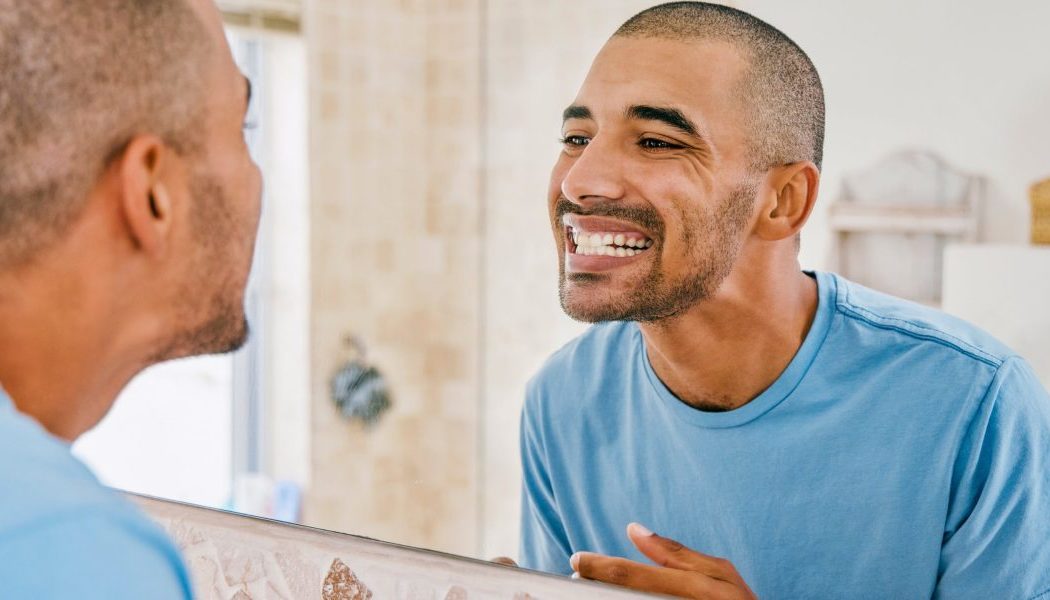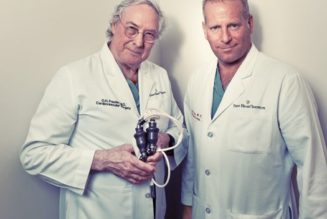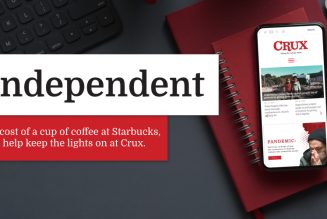
Experts say there’s one more way to look after your teeth and gums: rinsing your mouth with water after you eat.
Why rinsing your mouth after you eat is an excellent oral health practice
In order to understand the power of rinsing out your mouth post-breakfast, lunch, snacks, and dinner, you first need to understand pH. PH—or potential hydrogen—is the level of acidic and basic compounds in the body, with 0 being the most acidic, 7 being neutral, and 14 being the most basic, or alkaline. Ideally, your mouth should remain at a neutral or basic pH, but mealtime can make your mouth more acidic.
“Every time you eat, your saliva breaks food down for digestion, which will create an acid by-product,” explains Lilya Horowitz, DDS, of Domino Dental in Brooklyn, N.Y. “This leads to more biofilm and plaque buildup, so rinsing with a neutral or basic water can help lower the pH in the mouth.” In an acidic environment or an environment below 4.5 pH, the enamel of the teeth will start to break down.
Over time, enamel breaking down can contribute to cavities and dental decay, according to oral surgeon Jason Auerbach, DDS. “The acidity that sits on one’s teeth and the bacteria that comes from decaying food on the surface of one’s teeth are the primary culprits for tooth decay, so rinsing actual hard material and debris off of the teeth using regular water is the most sensible way to combat it,” he explains.
When you swish your mouth with water after every meal, you’re offering the teeth and gums a less acidic, healthier environment. Just make sure to get to the bathroom as soon as you take your last bite.
“The best time to rinse with water is immediately after eating, but certainly sugary or acidic foods are most problematic,” says Auerbach. Foods like sauerkraut, vinegar, tomatoes, citrus, and jelly are high in acidity, so make sure to rinse—and stat—after you’ve enjoyed any of these ingredients. “This will lead to the mouth being cleaner, which will lower the inflammatory response in the body,” Horowitz says.
One thing to note: You should never clean your mouth with bubbly water. “Carbonated waters, even the sugar-free ones, are acidic and can weaken enamel. Seltzers are okay with meals in short durations, but nursing a can for hours at your desk is bad,” says Horowitz. Citrus-flavored carbonated waters are the worst offenders due to their double dose of acidity.
Will mouthwash work instead?
If you’re already in the habit of rinsing with mouthwash after lunch at your desk, know that this practice does not replace swishing with some H2O. “The primary advantage to using mouthwash is [for] halitosis—a.k.a. bad breath compensation—but the bigger issue is that most of the times mouthwashes are acidic and therefore are not good for the surface of the enamel,” Auerbach says.
Many mouthwashes contain alcohol, an ingredient that lowers pH and dries out the oral mucosa or the soft tissue that lines the walls of your inner mouth. This could lead to poor gum health over time. “If you are at a higher risk for cavities or gum issues based on your dentist’s recommendation, a mouthwash may be beneficial,” says Horowitz. “However, I do not think there is much value in using a commercially available mouthwash unless you just enjoy the taste and would like to freshen your breath.”
If you do decide to purchase drugstore mouthwash, make sure to choose an alcohol-free option and ask your dentist which brand they recommend.
Is it safe to brush your teeth after every meal instead?
Short answer: No, it’s actually better to rinse with water after your meal. “Sometimes, after an acidic meal, brushing the teeth is not necessarily the best thing because the enamel is a little bit softer, and you can do some damage,” says Auerbach. While it’s safe to wash your mouth out with water immediately after eating, make sure to wait 30 to 60 minutes before brushing your teeth to avoid damaging your enamel.
That said, never skip brushing and flossing your teeth—if you can help it. “The benefit you derive by brushing your teeth or flossing after each meal will outweigh the negative effects,” says Auerbach.
For more on oral health care habits:









